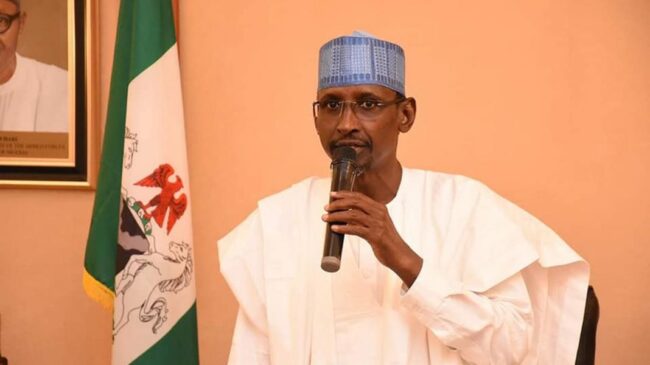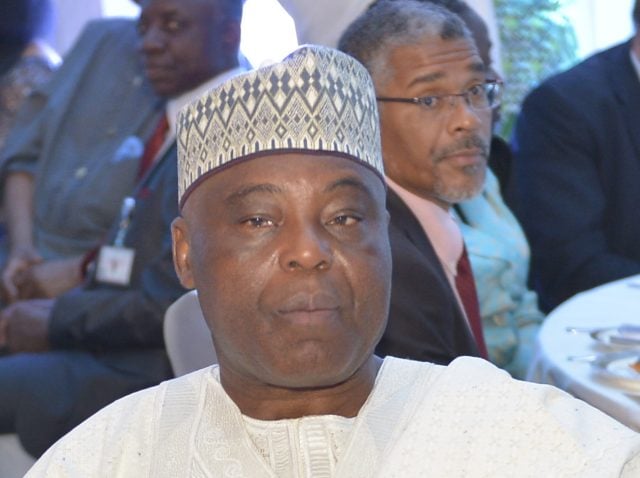The economic fortunes of Nigeria have long been dependent on the price of crude oil and continue to this day to be intertwined and affected by its increasing volatility. Despite the opt repeated aspirations of the government to diversify export earnings from oil and gas, these natural resources still account for over 90% of Nigeria’s export earnings. Covid-19 has accelerated the decline of oil and Nigeria must reimagine its economic strategy, if it is to achieve its much-touted potential for economic greatness.
At independence in 1960, Nigeria’s Gross Domestic Product (GDP) per capita, that is per person, was $93. By 2019 it had climbed to$2,230, an increase of over 2000%.This does not look bad until compared to the growth of World GDP per capita or to the GDP per capita of China or even Vietnam. The GDP per capita of China in 1960 was $90, lower than that of Nigeria. By 1980, China was still behind Nigeria with a GDP per capital of $195 compared to Nigeria’s $874. China’s fortune began to change in the eighties following its economic reforms and abandonment of a planned economy. By 2019, Chinese GDP per capita had risen to $10,262, not only has it overtaken Nigeria’s, but its GDP per capital is now over four times that of Nigeria. The rise of China shows what can be achieved when the right choices are made and implemented with rigour and pragmatism devoid of ideological rigidity.
President Muhammadu Buhari recently reiterated his commitment to lift one hundred million Nigerians out of poverty within ten years. This is indeed possible. But how will it be achieved? No details have been provided on how the government intends to achieve this and the 2021 budget submitted to the National Assembly did not indicate the specific programs that will be implemented to lift 10 million Nigerians out of poverty in 2021. The budget is the main instrument for implementing government policies and programs. Therefore, if the 2021 budget did not address how 10 million Nigerians will be lifted out of poverty in 2021, then how will this ambitious target be achieved?
Lifting one hundred million Nigerians out of poverty within ten years is a worthy goal but it won’t happen unless actions are taken to engineer annual inclusive economic growth of 7% or more. Nigerian can learn a lot from China in this regard. China’s success in economic development began with reform of agriculture and shows that incentives matter. With the right incentives, the private sector can become the engine of growth because the State cannot achieve it alone. We only need to look at Nigeria’s recent drive to increase rice production and milling and the private sectors’ embrace of government’s interventions in this area, to appreciate the power of incentives.
Advertisement
So what policies can the government implement to accelerate sustainable inclusive economic growth? First, a good strategy requires choice, trade-offs and prioritization. The government cannot do everything at once. It has to choose. Second, the government needs to create an environment that encourages high levels of investment, job creation, competition and inclusiveness. Third, a more labour demanding economic development strategy that focuses on improving agricultural yields and export-oriented manufacturing could deliver faster economic growth that is also more inclusive. Fourth, a holistic approach that requires aligning monetary, fiscal and trade policies, with development needs while appreciating the trade-offs needs to be adopted. Fifth, investments, both public and private, are absolutely critical for growth, thus, government urgently needs to find ways to increase investments. Finally, and equally important, are investments to improve the quality of public education and primary health care.
To get agriculture right, Nigeria can learn from China and more recently Vietnam. China began its successful economic transformation by abolishing the collective system of agricultural production and allowing individuals to farm their land and sell most of their products at market price. Getting agriculture right does not mean getting more people into agriculture. What China and others before it did was to get agriculture to be more productive per hectare such that fewer people will be required to till the land. The excess rural labour no longer required in agriculture then moves into manufacturing, which is far more productive than agriculture.
Next, Nigeria has to reinvigorate manufacturing by promoting manufacturing for exports. Some believe that due to the current nationalistic resurgence, export led growth will not succeed. But let’s ask ourselves whether the world will suddenly stop buying Samsung phones, Apple Macs, Turbines by Siemens, Mercedes Benz and so on? Or will the world stop using services such as Microsoft Office, Google, Ali Baba portal, reading books published in other countries, attending foreign universities etc.? I don’t think so. So, despite the noise, no country is 100% self-sufficient and no country will ever be. Therefore, trade will continue to be essential to improving the quality of life of people across the globe. Nigeria needs to export in order to buy what it cannot produce, perhaps due to natural resources constraint (e.g. wheat) or technological constraints (e.g. commercial jets). Nigeria can no longer rely on oil and gas as its main exports to fund its imports due to the current global push to reduce reliance on fossil fuels and increasing volatility of the price of crude oil. Hence the need for export led manufacturing to take centre stage.
Advertisement
Furthermore, the private sector has to be at the heart of the export led manufacturing strategy. There should be an aggressive push to encourage domestic manufacturers to increase investments and a more focused campaign to attract Foreign Direct Investment into manufacturing. The Nigeria Investment Promotion Council should lead the process and should be strengthened immediately to carry out these important functions. It could target a few manufacturers of products Nigeria has a comparative advantage (e.g. apparels and footwear; electronics; petrochemicals and allied industries) and pursue these firms to establish factories in Nigeria. Nigeria can learn from China and Morocco in establishing Special Economic Zones (not just free zones) and in attracting FDI. Nigerian importers (including foreign owned firms) should also be encouraged to manufacture in Nigeria and target exports, while meeting local demand.
For export led growth to succeed, Nigeria needs to invest a lot more in infrastructure. Nigeria’s total investments (infrastructure, machinery etc.) have collapsed from the highs of annual average of 47% investment to GDP achieved in the eighties and nineties to the lows achieved in the last and current decade of 15% investment to GDP. Due to the current debt burden of the Federal Government, innovative financing and private sector participation in infrastructure should be the way forward. Focus in the beginning should be on rail, roads and power transmission and distribution due to their impact on competitiveness. Also, project selection should not be politicised but be based on where the economy will benefit the most.
More investments in human capital (education and health) are also required. In 2019, Nigerians spent over $6 billion sending their children abroad to study. This is a huge sum and is almost three times Federal spending on education. Nigerians also spent $2.56 billion on foreign medical care in 2019. Clearly Nigerians value quality education for their children and quality healthcare for themselves. Increasing investments to improve quality of education and healthcare will not only have a direct impact on the wellbeing of Nigerians but will also lead to higher economic growth. It will also save scarce foreign exchange as richer Nigerians will divert some of their foreign spending to local schools and hospitals.
Success also requires not only a change in strategy but reform of the civil service. The quality of the current civil service is not fit for purpose and it will not be able to implement the above policies with the level of quality and intensity required. The reform of the civil service should ideally reduce the number of agencies and personnel, while increasing salaries in order to attract the best. The coronavirus pandemic has shown that the Federal civil service is over staffed. For nine months, the ministries functioned with less than half the staff and there was no indication of deterioration of services. To succeed, reforms should not be domiciled with the Head of the Civil Service because the civil service cannot reform itself. Furthermore, it might be advisable to start the reforms with the three most important ministries namely: Finance, Budget and National Planning, Agriculture and Industry, Trade and Investment.
Advertisement
Patience, pragmatism and perseverance are also essential for success, as the journey is very long and nothing is guaranteed. Failure to act now will be very costly as the ensuing economic stagnation will lead to further insecurity, increase in poverty and hardship for the majority.
It was Robert Lucas Jr., the Nobel prize winning economist, who said and I paraphrase: “Is there some action a government of India (Nigeria) could take that would lead Indian (Nigerian) economy to grow? If so, what, exactly? The consequences for human welfare involved in questions like these are simply staggering: Once one starts to think about them, it is hard to think about anything else”. Our leaders need to heed his wisdom and begin to think rigorously about questions relating to economic growth and to act decisively to solve these questions. Otherwise, Nigeria’s economy will continue to underperform and tens of millions of Nigerians will continue to live with the pain and indignity of abject poverty.
Ado is the Founder of Sana’a da Ilmi Foundation, a non-profit dedicated to improving the quality of public education.
Advertisement
Views expressed by contributors are strictly personal and not of TheCable.
Add a comment






